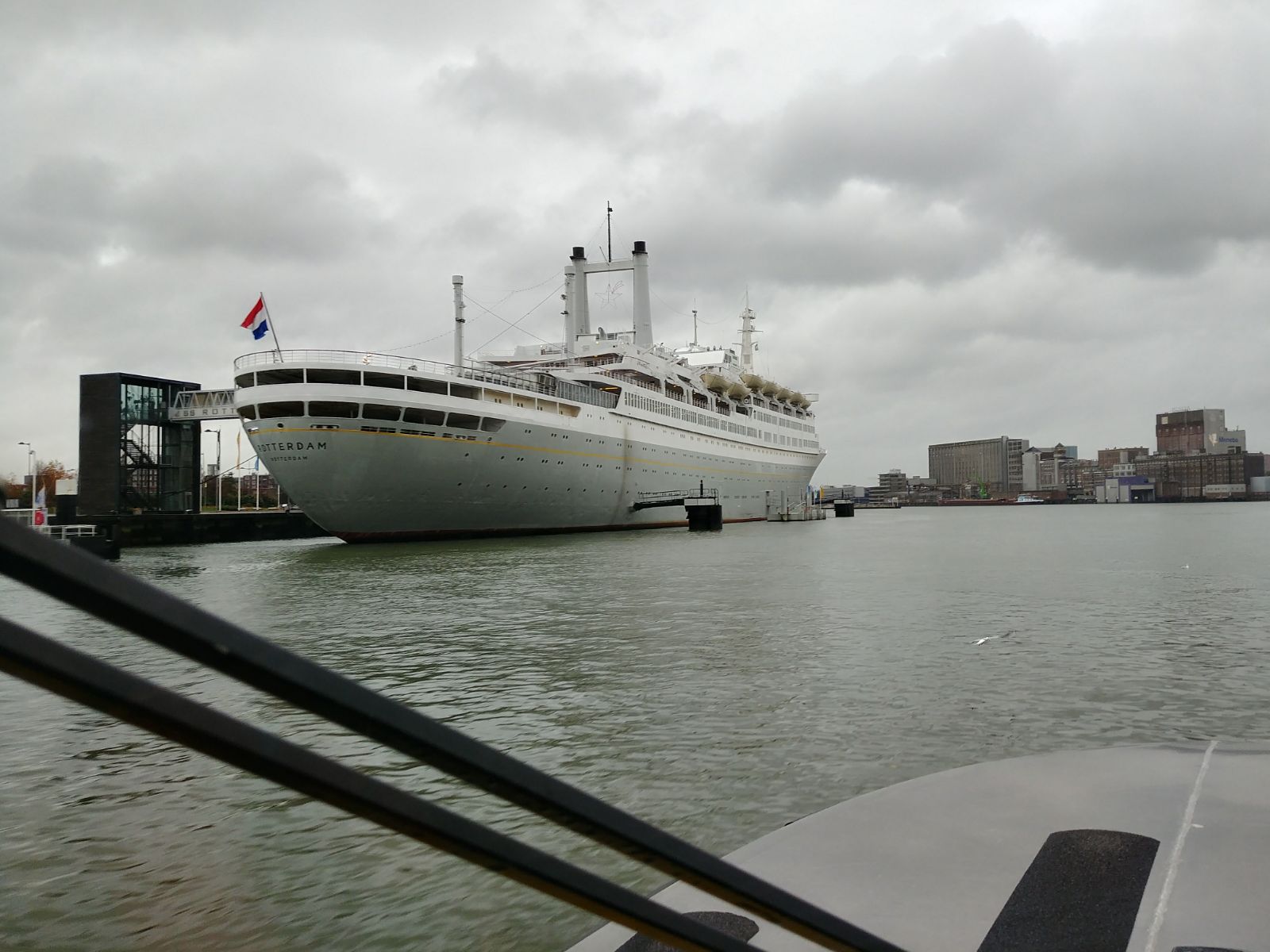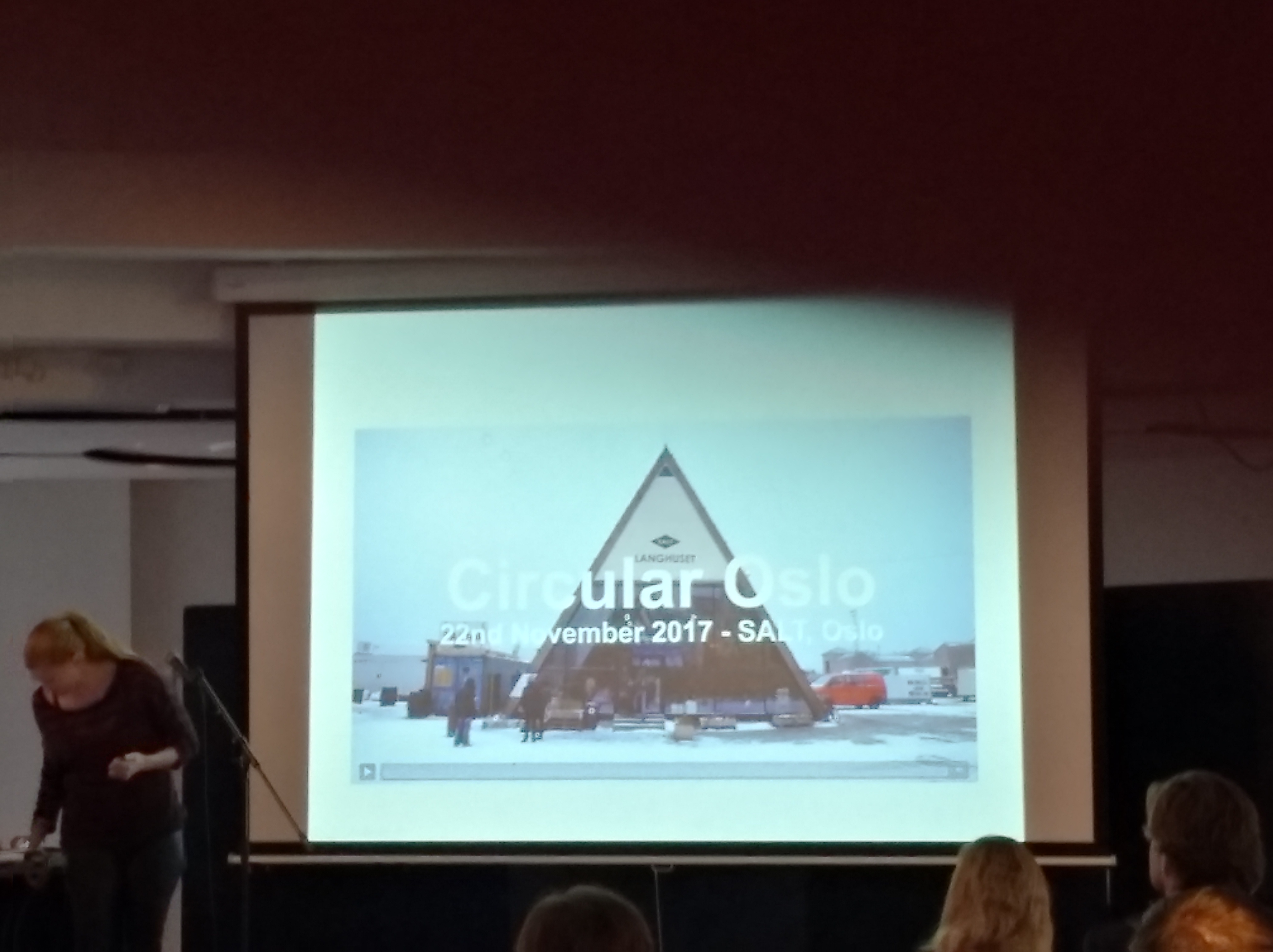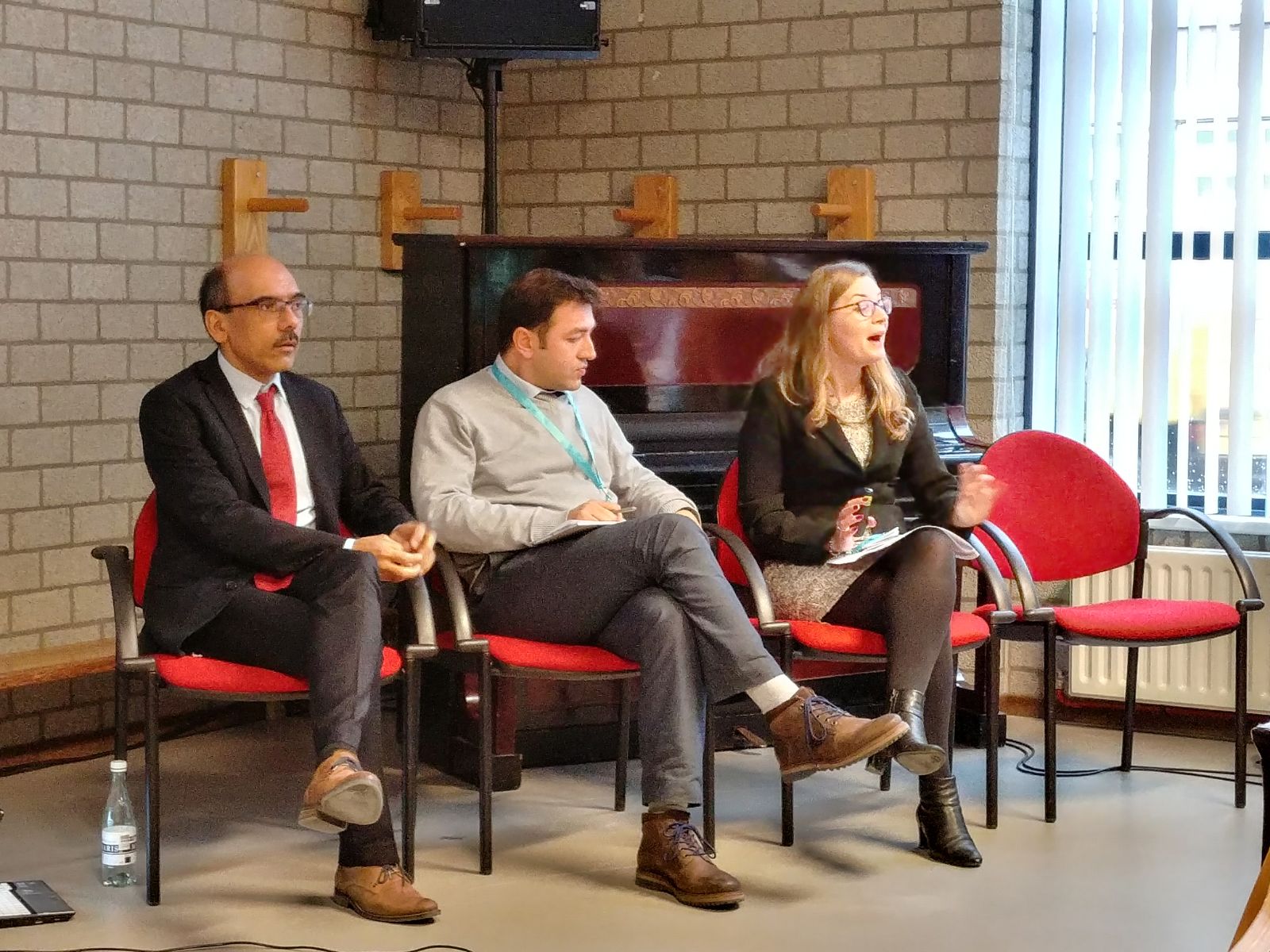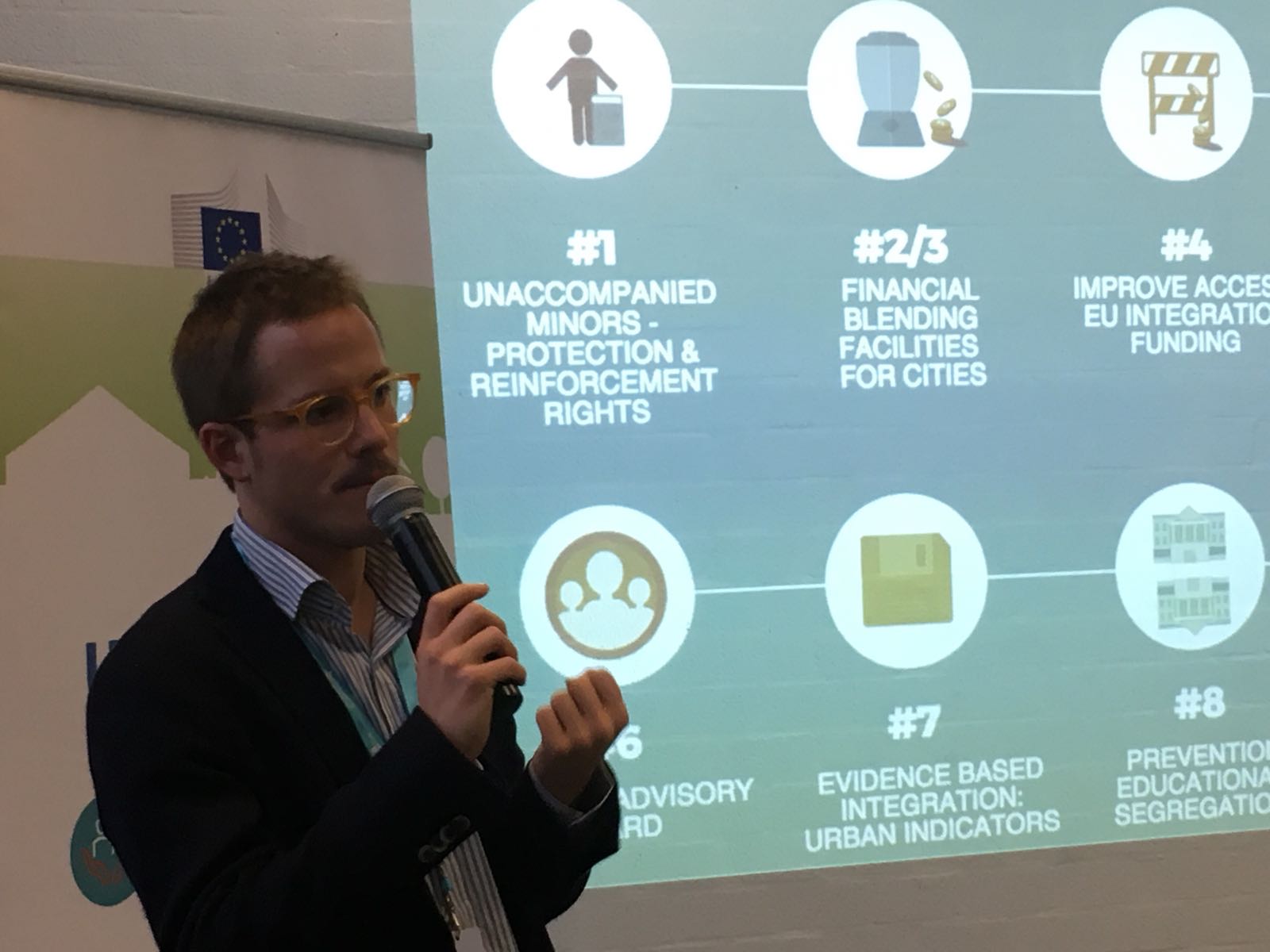-
1 comment
This is what happened on day 1
The CITIES Forum provides one of this year’s most distinguished events on urban policy, hosted by the City of Rotterdam and organised by the European Commission. Taking place at various locations throughout the city of Rotterdam, with the former cruise ship SS Rotterdam at its heart, the event truly embraced the city and presented it to the conference visitors.
/futurium/en/file/rotterdamstationjpegrotterdam_station.jpeg

/futurium/en/file/rotterdamboatjpegrotterdam_boat.jpeg

Day 1 saw the Partnerships’ workshops and a high-profile opening programme, featuring keynote speeches of Ahmed Aboutaleb (Mayor of Rotterdam), Corina Crețu (Commissioner for Regional Policy), Joan Clos (Executive Director of UN-Habitat), and Kajsa Ollongren (Minister of the Interior and Kingdom Relations and Deputy Prime Minister of the Netherlands). All of them emphasised cities’ enhanced societal and political role as well as fundamental contribution towards sustainable development.
/futurium/en/file/closingjoanclosjpegclosing_joan_clos.jpeg

The workshop sessions covered eight of the twelve Urban Agenda Partnerships –those started in 2016 and early 2017 under the Dutch and Slovak Council presidency–, which presented their work to a broader audience. During the workshops, some of the Partnerships explicitly addressed their (draft) Action Plans, while others focused on specific thematic aspects of their work.
/futurium/en/file/digitaltransitionjpegdigital_transition.jpeg

Organised at the Cambridge Innovation Center Rotterdam, the Partnership on Digital Transition welcomed participants with the case study of the cities of Oulu and Eindhoven, currently working on projects to enable public-private-people partnerships and to develop socially responsible business models through cooperation in urban Living Labs. Precisely this human dimension was presented more in detail and further discussed with speakers, who tackled the issue from the entrepreneurial (start-ups need talent!), the urban (cities’ innovation to improve lives), the economic (roadmap towards the 4th transition) and the communication angle (big data for better services to the citizens).
/futurium/en/file/circulareconomyjpgcirculareconomy.jpg

The Partnership on Circular Economy organised its workshop at BlueCity, a former swimming pool turned into an incubator for circular entrepreneurs. Several case studies were presented. Rotterdam showed the audience what a circular city looks like and Oslo showed why it will be the European Green Capital of 2019, highlighting the motto: “reduce, share, circulate and replace”. The Partnership also used the occasion to present its work, the bottlenecks it has detected and the proposed actions that will be soon shared and discussed during a Public Feedback.
/futurium/en/file/housingjpghousing.jpg

The Partnership for Affordable Housing kicked off its workshop with a general introduction to the Partnership: who they are, what they do and where they are standing now. With a room full of interested parties, the day introduced new approaches to tackling growing housing unaffordability in Europe, ways to building capacity to replicate success stories such as that of Rotterdam Zuid and possibilities for the EU to boost the process. The inevitable dilemma arising from public intervention (improvement of depressed urban areas vs. potential resulting gentifrication) was also discussed as well as the impact of housing issues on human lives. In Bert Wijbenga’s words, chair of Housing Europe, “this is about neighbourhoods”. In support of that statement, the Partnership visited different locations in Rotterdam hand in hand with Vestia, an agency committed to households with a low (middle) income and/or a vulnerable position in society.
/futurium/en/file/jobsjpegjobs.jpeg

The Partnership on Jobs and Skills in the Local Economy presented the first results of a stakeholder survey on the identified themes. Jelgava, one of the coordinating cities, presented the bottlenecks and challenges of the Partnership while Romania elaborated on “what cities can do in order to get economic development going”. Liviu Bailesteanu, representing the Co-Coordinator Romania, noted that the Urban Agenda for the EU is about breaking silos and that Partnership work is indeed all about building a partnership. Hans Verdonk from Rotterdam, the third Co-coordonator, emphasised the importance of “moving to a next economy” by shifting from fossil/industrial economy to an economy based on knowledge, interconnection, sustainable energy, and digitisation. He concluded his thoughts by remarking that the next economy is built on the next society.
/futurium/en/file/urbanpovertyjpegurbanpoverty.jpeg

The focus of the Urban Poverty workshop was on the regeneration of deprived neighbourhoods, child poverty issues, integration of Roma communities into society and the topics of homelessness. As expected, the topic of the integration of Roma people provoked an extensive discussion between workshop participants. The importance of trust is not to be neglected, as it presents the precondition in the integration process. Secondly, it was found that the mediator persons are to be professionally educated to successfully play their roles in the integration progression. And finally, it was held that the perspective towards the challenges needs to be framed by the acknowledgement that people belonging to a minority have the same needs as any other, that is a good education, work and home.
/futurium/en/file/airqualityjpgairquality.jpg

The Workshop on Air Quality took place at the City Hall. Rotterdam started the presentation by explaining its challenges as a port city with an increasing and young population and, at the same time, a relatively small part of it living in the centre. London explained its dual approach which consists of cleaner vehicles and reducing demand. New hybrid, hydrogen or electric double-deckers will circulate from 2018. All single-deck buses will be zero emission at tailpipe in central in 2020. The capital aims at achieving a full fleet of zero emission taxis by 2033. It plans to support infrastructure for electric vehicles and implement low and ultra-low emission zones. A participant said: “I’ve seen the future and it’s a small, ugly town in the south of Holland” - hinting at the city of Eindhoven, which described the concept of vanishing traffic and showed the results of its traffic measures.
/futurium/en/file/urbanmobilityjpegurbanmobility.jpeg

The Partnership on Urban Mobility presented the state of affairs and invited the participants to discuss the first proposed actions. In light of the upcoming Public Feedback on the draft Action Plan, to start in late January 2018, the Coordinators (the city of Karlsruhe and the Czech Republic) emphasised the importance of outreach, political support, and public input. A site visit to the Rotterdam central train station and underground bicycle parking garages showcased how Rotterdam is meeting its very own urban mobility challenges.
/futurium/en/file/migrantsjpegmigrants.jpeg

The Partnership on Inclusion of Migrants and Refugees is one of the pilot Partnerships with a clear set of actions and recommendations. During the workshop, the Coordinators (the city of Amsterdam and DG HOME) presented not only these actions to the public. They also showcased concrete challenges that migrants and refugees face, based on personal stories shared by two refugees living in Rotterdam, and the policy responses that cities provide. During breakout sessions, all participants were invited to design local-level policy recommendations and actions building on the outcomes of one of the Partnership’s conferences.
What you can expect from day 2
On day 2 (28 November), the CITIES Forum will provide an important platform for discussing a broad range of urban topics – from the New Urban Agenda to the Urban Agenda for the EU, the new Advisory and Investment Platform for Cities presented by the European Commission and the European Investment Bank, and the urban dimension of cohesion policy. So stay tuned at this website and on Twitter @EUUrbanAgenda!


